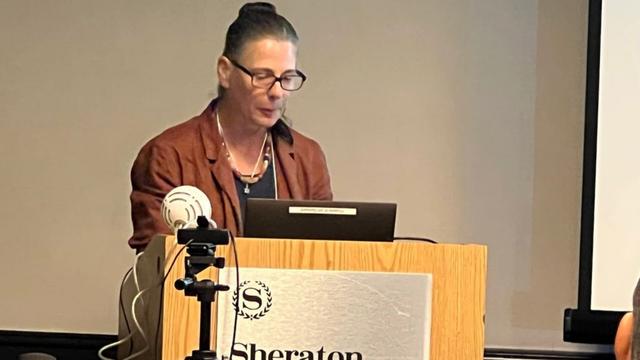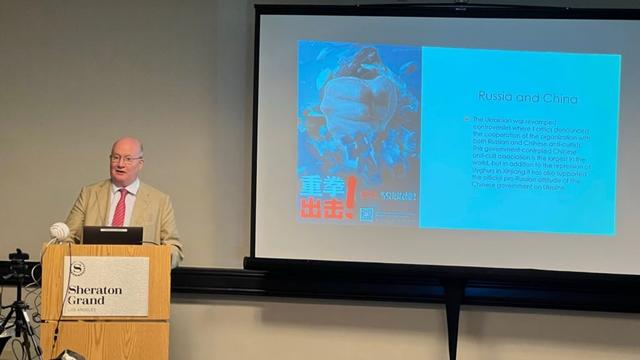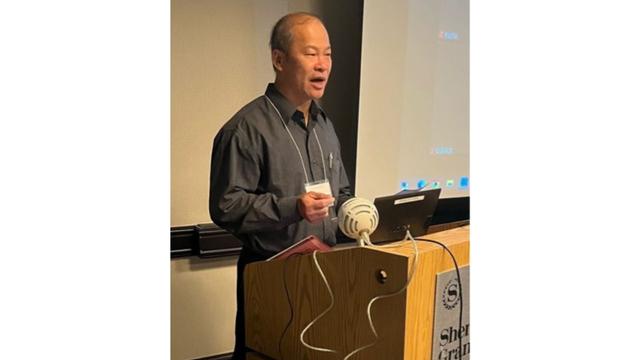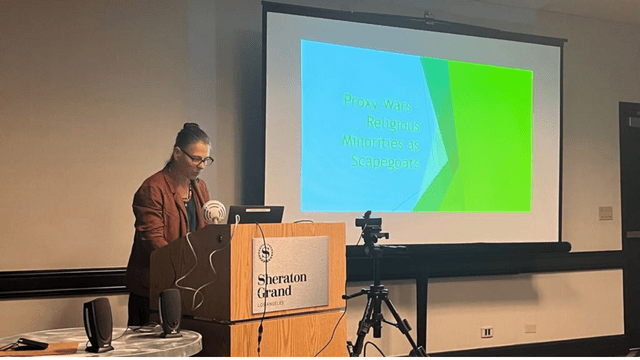Scholars argued that labels such as “cult,” “xie jiao,” or “religious fraud” have no real meaning and are used as tools for discrimination.
by Alessandro Amicarelli

The Association for the Sociology of Religion (ASR) held in Los Angeles on August 6–8, 2022, its 83rd Annual Meeting. It opened with presenting to senior sociologist James T. Richardson the ASR’s Lifetime Achievement Award.
Professor Richardson was among the scholars who attended on August 7 one of the inaugural sessions of the meeting, devoted to “‘Cults’: The International Return of a Dubious Category.”

Holly Folk, professor of Religious Studies at Western Washington University, Bellingham, Washington, introduced the session by reflecting on the continuous use of the word “cult” by popular media, politicians, and governments, even if most scholars of religion warn against using it because it is ambiguous and can easily function as a tool for discrimination. She mentioned Taiwan together with France among the democratic countries where groups labeled as “cults” or with other derogatory labels have been discriminated against. She also noted the extension in the United States of the use of “cults” to political controversy, where rival organizations or parties are also labeled as “cults” by their opponents.
Folk believes that groups that commit serious crimes do exist among spiritual movements, as they exist among political organizations or business corporations. She suggested they should be called “gangs” rather than “cults,” since “cult” is now a word loaded with a heritage of confusion and ideological use.

Donald Westbrook, a lecturer for the School of Information at San José State University and the School of Information at the University of Texas at Austin, and the author of both a landmark study on the daily experience of Scientologists and a recent book on Scientology and its founder L. Ron Hubbard offered as an example of the discriminatory use of the word “cult” the campaigns against the Church of Scientology. He added that the fact that some teachings of Scientology are kept secret is mentioned as evidence of the “sinister” nature of the movement, while in fact religious and esoteric movements have protected the secrecy of certain teachings for centuries. Westbrook mentioned that problems of discrimination through labeling are not exclusive to the West, and gave as an example his study of the Tai Ji Men case in Taiwan.

Rosita Šorytė, a former diplomat and author of several studies of religious liberty and new religious movements, discussed the use of labels such as “totalitarian cult,” “destructive cult,” and “extremist religious movement” in Russia. She mentioned how these are also used as propaganda weapons during the war in Ukraine, to propagate the false claim that “cults” created and maintain anti-Russian feelings among the Ukrainian population. What is happening in Ukraine, Šorytė concluded, is an example of how labels stigmatizing certain religions and spiritual movements are weaponized for political and propaganda purposes.
Massimo Introvigne, an Italian sociologist who serves as managing director of CESNUR, the Center for Studies on New Religions, and editor-in-chief of Bitter Winter, stated that there is now a globalization of discrimination, because anti-cultists in different countries and continents exchange derogatory information about religious and spiritual minorities, which are disseminated internationally.

Introvigne then discussed the Chinese concept of “xie jiao,” which is not equivalent to the Western notion of “cult,” and in Chinese history has been used since the 7th century CE to persecute groups accused of being hostile to the government and using black magic. While there is a rich literature on the use of “xie jiao” in the People’s Republic of China, Introvigne said, it is less well known that the same concept has also been used in Taiwan, both during and after the Martial Law era, to discriminate against groups accused of not supporting the government.
He then presented a detailed reconstruction of the Tai Ji Men case, showing how it became a victim of a politically motivated crackdown against several groups labeled as “xie jiao” in 1996. Eventually, Tai Ji Men achieved a completed victory in the criminal case fabricated against its leader and members, who in 2007 were declared innocent of all charges by Taiwan’s Supreme Court. However, a parallel tax case continued, as the National Taxation Bureau refused to acknowledge that the Supreme Court had clearly indicated that Tai Ji Men was not guilty of tax evasion. Eventually, based on a technicality, only one tax bill, for the year 1992, was maintained, and led in 2020 to the unsuccessful auction and subsequent seizure of sacred land of Tai Ji Men intended for a self-cultivation center.
Introvigne concluded that during the more than 25 years of the Tai Ji Men case discriminatory labels were used to justify an ill-founded persecution, which confirms their political use.
Two Tai Ji Men dizi (disciples) offered responses to the session. Susan Wang-Selfridge, a former lecturer at the University of California Los Angeles and now a teacher of music in private practice, responded to the Folk, Westbrook, and Šorytė papers, and noted that the issue of discrimination is present in the musical world too. She offered as an example Puccini’s opera “Madame Butterfly,” one of the six most represented operas internationally. The story of a Japanese woman who is seduced and abandoned by an American naval officer while she is pregnant, the opera has been recently accused of including orientalist prejudices and ethnic stereotypes. While this work of 1904 cannot be judged by 21st-century standards, Wang-Selfridge noted that the audience in fact identifies the American officers as the villain. He abuses the Japanese girl because of his religious prejudices, as he believes that only a woman raised within Christianity is eligible to become a good wife and mother.

Just as the American officer believes that non-Christian religions may not be taken seriously, Wang-Selfridge said, some today use labels such as “cults” to indicate that they refuse to take certain religious and spiritual minorities seriously.
The second respondent, Jeff Kuo, a business manager, answered Introvigne’s paper, and observed that, based on his own experience as a Tai Ji Men dizi, an important feature of the “xie jiao” label is that it is used capriciously. For instance, the movement responsible for the 19th-century Taiping rebellion was regarded as the quintessential “xie jiao” in Imperial China but was rehabilitated by both the Kuomintang and the Chinese Communist Party for political reasons.

Why, asked Kuo, was Tai Ji Men labeled in 1996 as a “xie jiao” or a “religious fraud” while other similar groups were not attacked? Why the content of the red envelopes offered by dizi to their Shifu (Grand Master) was regarded as taxable tuition fee in the case of Tai Ji Men while it was considered non-taxable gifts in the case of dozens of other martial arts and qigong organizations? “A short answer, Kuo said, is that there is no answer,” meaning there is no answer participants in a scholarly conference could acknowledge as reasonable. This labeling activity is totally political. Words are used to crack down on groups some bureaucrats or politicians have decided to punish. This is an important feature of the Tai Ji Men case, Kuo concluded, thanking scholars for evidencing that these capricious and discriminatory labels “do not mean anything” and are just a warrant for persecution.
Source: Bitter Winter

